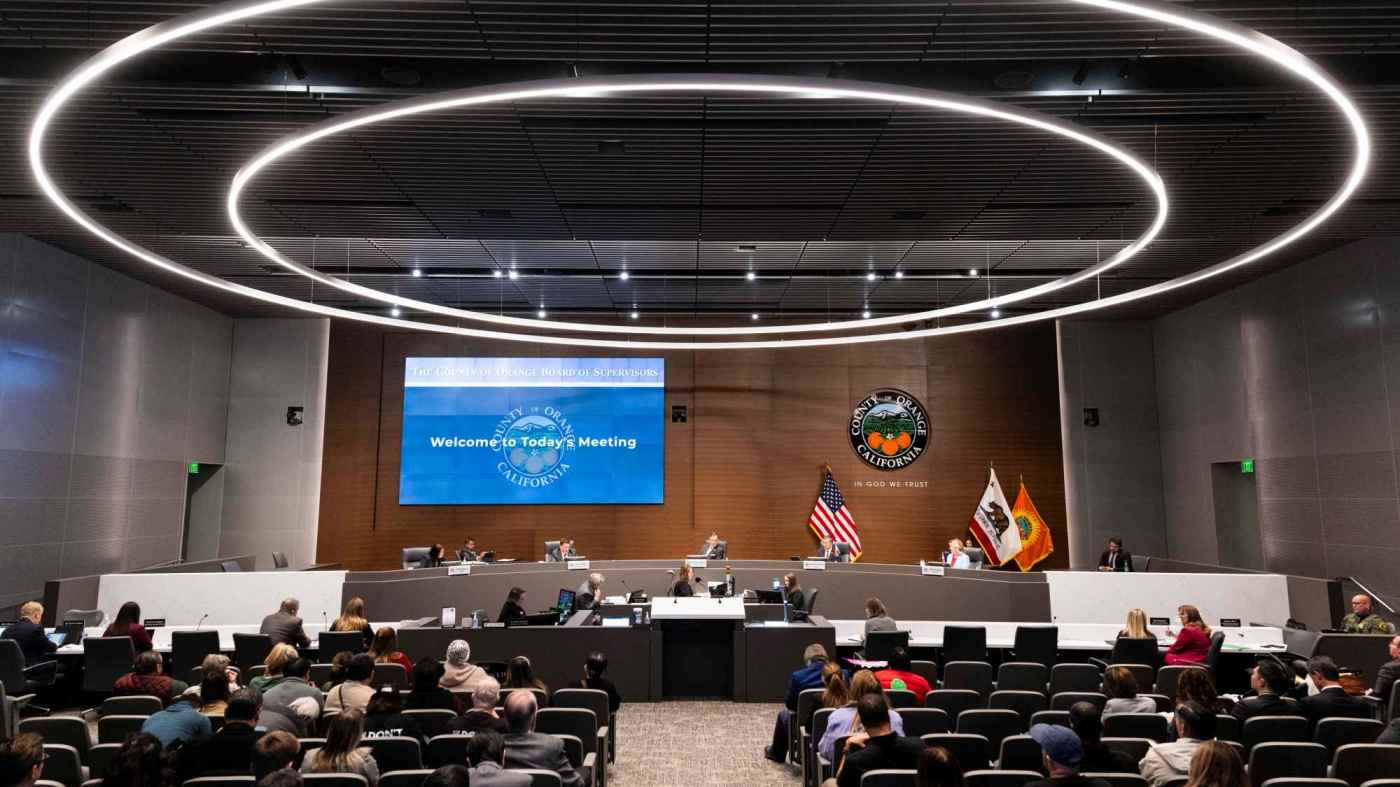Orange County has a new ethics code offering stronger protections for whistleblowers and requiring elected officials to sign a copy of the policy that acknowledges they won’t use their office for personal gain, among other violations.
The OC Board of Supervisors approved the policy additions on Tuesday, Aug. 12. But the changes fell far short of what Second District Supervisor Vicenete Sarmiento said he had wanted when the board asked county staff eight months ago to develop an updated policy in the wake of former Supervisor Andrew Do’s corruption saga.
“I expected more,” Sarmiento said Tuesday. “I know there are other jurisdictions that do more. I am very disappointed in what little this first step has brought us.”
Sarmineto said he thought the board would get something much stronger than what’s already in place.
One day after former supervisor Do was ordered to pay the county $878,000 in restitution for the bribes he took while in office to direct millions in funding to two local organizations, Sarmiento said he was saddened for the public by the new ethics code changing little.
One way the updated policy falls short is that it doesn’t require county employees or elected officials to blow the whistle on wrongdoing, Sarmiento said.
Other supervisors were less critical.
Chair of the Board of Supervisors Doug Chaffee said he was pleased that the county was adding “meaningful” new protections for whistleblowers.
First District Supervisor Janet Nguyen was also supportive of the new ethics code and called it a living document that can be updated.
Since Do’s bribery scandal emerged, the county ordered a forensic audit of contracts he was involved with to see if more might be tainted. Officials also put new protections in place when issuing contracts, such as requiring the county’s contract procurement office to review all contracts that come from supervisors’ discretionary funds.
The county has had a code of ethics in place since 1993.
The code lays out a standard for county officials and employees to follow, the intent being “to strengthen county public service and to maintain and promote faith and confidence of the people in their government.”
One of the changes made Tuesday is to require new supervisors to sign a copy of the code when they enter office, acknowledging they know the rules.
Where the code already talked about officials and employees being required to demonstrate the “highest standards of ethics consistent with the law and the requirements of their positions,” not “acting for personal gain” was thrown in.
A new section adds protections for whistleblowers. The section says no officials or employees should threaten “to use any official authority or influence to discourage, restrain or interfere with, or effect a reprisal against any person” who is bringing to light “any information that, if true, would constitute a gross waste of county funds, a gross abuse of authority, a specified and substantial danger to public health or safety due to any act or omission of a county official or employee, or the use of a county office or position or of county resources for personal gain.”
There were already sections in the ethics code prohibiting the use of county-owned equipment and property for personal use; engaging in business or activities or having a financial interest that conflicts with their duties; and political activities that interfere with doing one’s job.
A “revolving door” section prohibits county officials or employees from meeting with former colleagues who are acting as a lobbyist within a year of leaving their county position.
